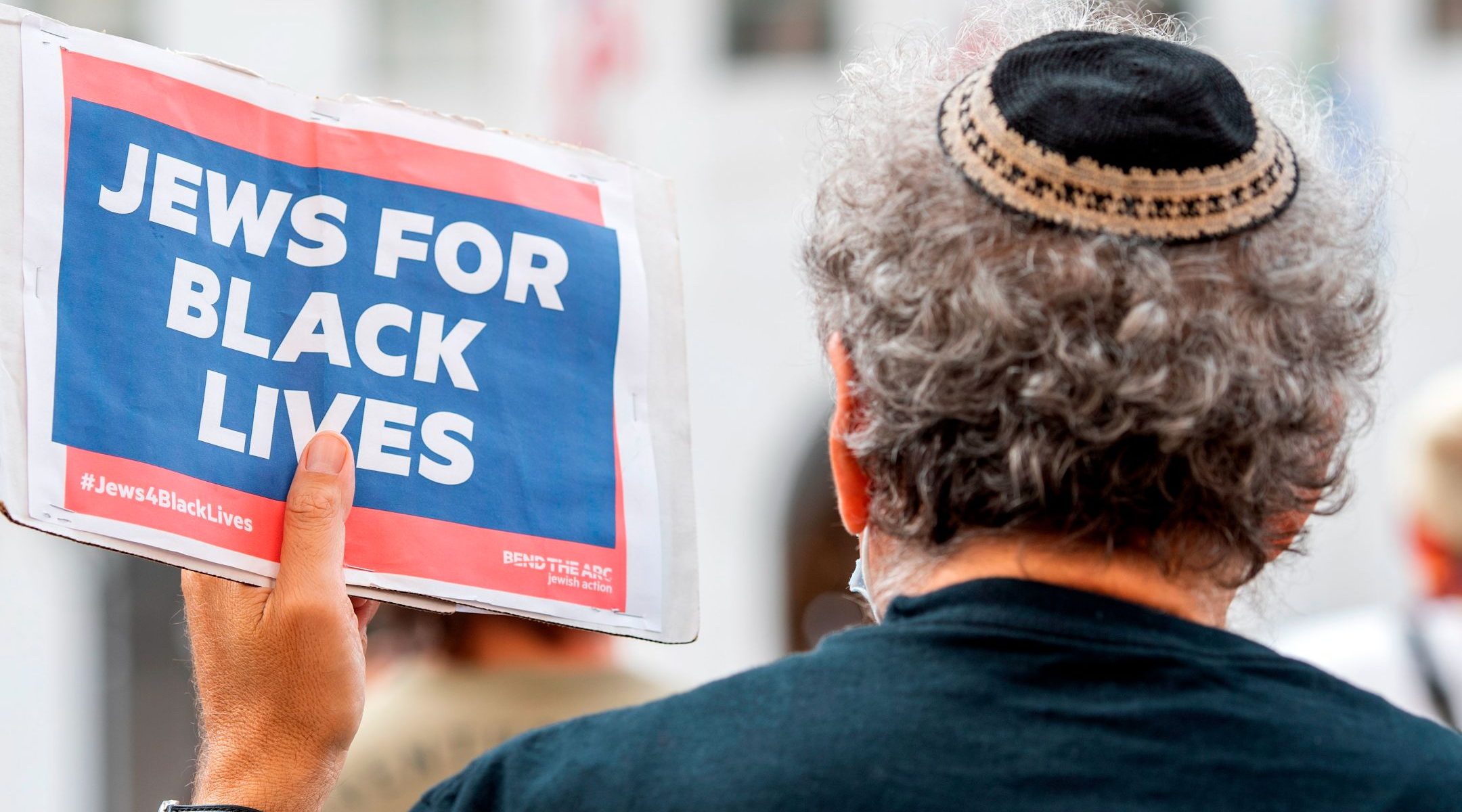In the summer of 2020, a friend and I were deep in conversation about race. You might remember it well, that summer of reckoning that followed George Floyd’s murder, igniting discussions on race across the country. Race relations suddenly became as central a campaign issue as the economy and health care.
“Why does color have to matter so much?” my friend asked. This question lingered with me.
As a sociologist studying American Jews, I was curious about how this community — often lauded for its progressive stances on social justice — was navigating the national debate on race. One stark point of division stood out —regarding perception of discrimination. According to the Pew Research Center, Jewish Democrats are nearly four times as likely as Jewish Republicans to believe Black people face significant discrimination (71% vs. 18%), with a similar gap in views on discrimination against Hispanic people.
This polarization was surprising. Historically, American Jews have been regarded as some of the most progressive on racial issues, often supporting pro-integration policies, expressing favorable views toward Black Americans and engaging in racially tolerant behaviors.
This polarization within a community known for advocating equality left me wondering: What’s behind these divergent perspectives? In fall 2020, I had a unique opportunity to find out.
At the time, I was interviewing Jewish parents in the Philadelphia area about how they were coping with the economic setbacks of COVID-19. Philadelphia was also a focal point for racial protests. Toward the end of each interview, I asked about their views on the protests, whether they had participated and what shaped their views on the 2020 presidential election. This study, co-authored with Ilana Spencer and Landon Schnabel, was published this year in Contemporary Jewry.
The people I spoke with were politically diverse: About a third leaned conservative, another third leaned liberal, and the remainder identified as independent, libertarian or without a clear position. This political variety reflected the religious makeup of my sample, which was about half Orthodox.
I found that nearly half of my interviewees supported the Black Lives Matter movement, while others were indifferent or opposed. This divide was often shaped by political and religious affiliations, with many politically and religiously conservative respondents expressing views that sociologists describe as the discourse of “colorblindness.” Proponents of “colorblindness” try to ignore race altogether. They suggest that racial issues come from individual behavior instead of bigger, systemic problems. Several people I spoke with described Floyd’s death as simply the result of “bad officers,” or as one woman, Miriam, put it, as a case of “a few bad apples” — sidestepping the possibility of a larger issue like systemic racism.
(Note: All quotes in this piece come from study participants whose identities were kept anonymous in order to protect their privacy under ethical research guidelines.)
Critics of colorblindness call it a subtler form of racism — entrenching inequality by rationalizing the existing racial hierarchy. Proponents of colorblind rhetoric argue that acknowledging race perpetuates division and discrimination.
This colorblind approach also connects with what’s called “respectability politics” — the idea that marginalized groups need to act a certain way if they want fair treatment. Yael expressed frustration with the protests, saying, “If you want to show that you need to be respected, don’t go around smashing windows.” This idea places responsibility on individuals and communities rather than addressing root issues like unequal access to education or healthcare, which make it harder for certain groups to succeed.
Some also embraced a “post-racial” view, believing racial barriers are relics of the past. Tehila cited the election of Barack Obama as proof that anyone can succeed: “We elected a Black president,” she said. “How would that happen if the majority here are racist?”
Some people shared personal or family stories — especially ones about Jewish struggles — as a way to make sense of racial issues. Rivka, for example, spoke about how her father succeeded despite facing discrimination, asking why Black Americans couldn’t do the same. Such stories often frame success as achievable for everyone, assuming that hard work alone overcomes barriers, thereby minimizing structural issues.
In contrast, those who supported BLM — mostly liberals and independents — saw systemic racism as a pervasive problem needing urgent action. Cheryl, who attended a racial justice protest with her children, viewed the protests as essential for achieving racial equality. For others, like Mike, recognizing systemic racism helped him connect with the movement. “I think they [Black people] have a right to be angry,” he said, acknowledging the deep impact of generational poverty and inequality.
After my research, here’s what I’d say to my friend who asked, ‘Why does color have to matter so much?’ For some Jewish Americans, I’d explain, color shouldn’t matter at all. Many conservative Jews see racial issues as personal problems, not systemic ones. If everyone is treated equally under the law, any disparities come down to individual effort and responsibility. This “colorblind” view aligns with Republican ideals of personal accountability, emphasizing fairness through equal treatment. But this perspective can overlook how structural inequalities shape outcomes for marginalized groups, making it easy to attribute disparities solely to personal choices rather than larger issues.
On the other hand, liberal Jews take a different view of fairness. They believe that ignoring race doesn’t make inequality go away — in fact, it makes it worse. For them, fairness means actively addressing the barriers that keep certain groups at a disadvantage. They see true equality as something that requires policies and reforms to break down the accumulated effects of discrimination. From this viewpoint, pretending race doesn’t matter only serves to reinforce the same inequalities that many are trying to dismantle.
While my study cannot definitively determine whether political affiliation or Jewish values primarily drive attitudes on race, it reveals the correlation between denomination and political ideology, suggesting a dynamic relationship where the two likely reinforce each other.
As we head into the 2024 election, it’s striking to see how much the national conversation has changed. In 2020, race was front and center; today — even as one of the candidates is a person of color and the other is white — it’s been pushed aside by other pressing issues. But the deep divides over race and inequality within the Jewish community — and across the country — are still here. These divisions reveal just how differently we understand what fairness and justice really mean. So while the question of why color matters may not be in the headlines right now, it’s not going anywhere. It continues to expose the tough, underlying rifts in how Americans — Jewish and otherwise — wrestle with the complicated reality of discrimination.
JTA has documented Jewish history in real-time for over a century. Keep our journalism strong by joining us in supporting independent, award-winning reporting.







